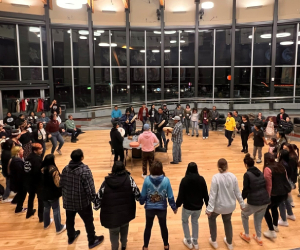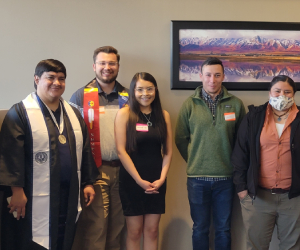In November 2022, APLU and Cornell University partnered to host a three-hour workshop convening public university and indigenous leaders to increase scholarly understanding of land dispossession history and its relationship to contemporary Indigenous people; support institutional learning by having campuses share their experiences and actions that they have taken to support Indigenous students and learning; and provide opportunities for campuses to collaborate and generate resources that could be shared more widely with APLU member institutions engaging with this topic. APLU and Cornell recently issued a progress report on this work.
Recommendations:
- Collaboration: Participants recommended continued collaboration among institutions, tribal communities, and organizations like AIHEC to share resources, knowledge, and best practices in Indigenous education.
- Resource Allocation: Institutions were encouraged to allocate resources to measure the success of diversity and inclusion initiatives effectively.
- Faculty Development: Promoting faculty development in areas of cultural competence and decolonization should be a priority for institutions.
- Community Engagement: Strengthening partnerships with Native tribes and communities, involving them in decision-making, and respecting data sovereignty should be central to transformative change efforts.
- Curricular Integration: Institutions should prioritize the integration of Indigenous culture and non-Western knowledge into curricula.
- Support Systems: Building effective support systems for students, including addressing financial barriers, should be a key focus.
Learn More




A curated and managed site containing cultural heritage from eight Native nations in the inland Northwest. The material in the Portal is selected, vetted and narrated by each community following their own cultural protocols.
Learn More
Learn More




Opened in 1991, Akwe:kon, which means “all of us” in the Mohawk language, celebrates North American Indigenous heritage. Residents, of whom roughly half are Native American, share an interest in past and contemporary Native issues.
Learn More
Learn More




The University of California's Native American Opportunity Plan ensures that in-state system-wide Tuition and Student Services Fees are fully covered for California students who are also enrolled in federally recognized Native American, American Indian, and Alaska Native tribes. This plan applies to undergraduate and graduate students.
Learn More
Learn More




Washington State University is committed to meaningful Tribal consultation in support of Tribal sovereignty and the inclusion of their voices in teaching, research, and programming. Therefore, this policy establishes the formal procedures that govern interactions between WSU and Tribal governments.
Learn More
Learn More




James Madison University established a Native American Working Group to explore our history, identify needs and address supports needed for our Native American indigenous community. JMU contracted a Native American consultant to develop a plan forward in supporting faculty, staff and students.
Learn More
Learn More




The Student Center provides “home away from home”—providing space and programming that meets educational, social, and cultural needs of Native students. Some resources are cultural events, mentoring program, tutoring, meals, financial assistance, and much more.
Learn More
Learn More




The Native American Summer Mentorship Program (NASMP) is a program that offers mentored STEM research opportunities to Native American students.
Learn More
Learn More




Native undergraduate students are taught and mentored by Native faculty and staff in a cohort-based model to develop leadership skills and knowledge grounded on cultural principles, practices, and values centered around citizenship, scholarship, stewardship, and guardianship.
Learn More
Learn More




The Mentoring and Encouraging Student Academic Success (MESAS) program at Utah State University is a support and mentorship program for American Indian and Alaska Native students. MESAS aims to support Native American students and to increase the awareness of Indigenous issues.
Learn More
Learn More




The Center engages, promotes, and trains ethical Indigenous research and protocols that honor tribal governments and sovereign rights of American Indians and Alaska Natives. The CNRC supports a Research Affiliates and Associates group comprised of 81 tribal members, faculty, and staff.
Learn More
Learn More




Launched in 2019, this course offers an introduction to the language and culture of the Cayuga (Gayogo̱hó꞉nǫʼ) people, whose traditional territory is now home to Cornell’s Ithaca campus, and their relationship to plants and growing.
Learn More



Stay Connected
X (formerly Twitter)
Facebook
YouTube
LinkedIn
RSS